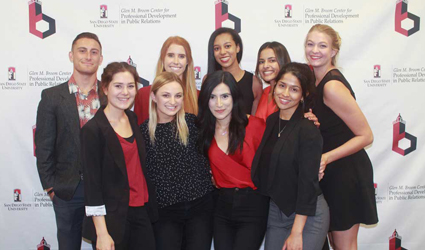Media Trust is a Problem for PR Too
 The public does not trust the media anymore.
The public does not trust the media anymore.
This isn’t a blanket statement meant to be sensational. The numbers are there. In fact, the Knight Foundation says 43% of American have a negative view of the media compared to only 33% who think positively about it. Pew numbers paint a slightly better picture where 21% of U.S. adults “trust the media,” but nearly half at 49% still say they only have “some trust” of the media.
What did the media do to deserve this? There are a lot of fingers pointing blame as to why people don’t trust the media right now.
Last month we talked about disinformation, and that part of the equation. Add to that the age-old argument that the media is biased. Today 10% of Americans mention sensationalism and clickbait as a reason for mistrust. We don’t have time to debate the reasons why trust is low. We want to get the media back to being more trusted than not.
As PR people, we can’t assume that the state of trust in the media doesn’t impact us.
We are all in it together, journalists and PR professionals that is. Even with the rise of owned media consumption by our publics, in PR we still use the third-party independent verification inherent in journalism. And if that party isn’t trusted, then we are in trouble alongside our journalist brethren.
These polls are troubling to PR as much as they are our media siblings in journalism. Distrust of the media is troubling to us in PR. There is a relevant trust issue with media, and all media professions suffer because of that.
Ways to Avoid Mistrust in Industries and Organizations
- Ensure your sources are credible. Credibility was such an important concept to communication that Aristotle put it in into his classic tenets for persuasion. As a third of the pillars of rhetoric, or persuasion triangle, credibility is from the eyes of your audience determines how they receive your message.
- Be a source for quality information. Are you about to send out your 47th news release this month, which is really just a rehash of the same thing you’ve been saying for the past six months? Stop. You’re hurting us. We are only as good and trusted as our content. If you keep saying the same thing then soon your audiences will drown you out and they won’t trust that broken record message you’re playing.
- Be accountable. Mistakes do happen. Own up to a mistake, be it a fact checking error or a rush to get ink on the page.
- Never, ever, ever lie, even for a second. The center’s namesake took his Midwestern values and applied them to the heart of his practice of PR. In 1997 he was quoted by the San Diego Union-Tribune as saying, “You have no choice but to tell the truth in the matter.” Glen Broom said it so well, didn’t he? And we know in good crisis communication, the earlier you own up to the truth the better.
In the media professions, credibility is our currency. Let’s get to work to regain our fortune.
The Broom Center’s third annual Allen H. Center Distinguished Lecture in Public Relations this spring will dig in deep on the impact of disinformation on the entire media industry – from journalism to public relations. Join us on March 10, 2020 when CNN’s John Kirby comes to San Diego State University to speak in this free and open lecture series.

